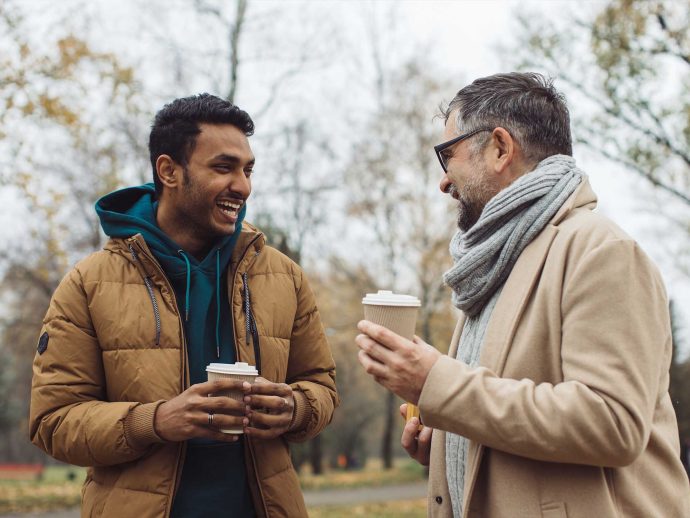
Although the beginning of the pandemic may feel like a lifetime ago, the lessons we learned from that time are important to remember—namely the significance of collective resilience. Above all else, we acquired a deeper appreciation for nurturing connections, upholding the belief that being socially connected keeps us safer, healthier, and happier.
Individual impacts
There’s no doubt the pandemic made many of us a bit jumpy. Although we suffered collectively, the effects on various population groups have differed.
“It’s important to acknowledge that people’s experiences of the pandemic had a lot to do with their life situation and the resources they had available to them, including the basics,” says David Gomes, life coach and mindfulness teacher. In general, women and parents experienced a heavier burden.
Generation “this versus that”
Like it or hate it, referring to different generations as X (born in the ’60s and ’70s), Y (millennials born in the ’80s and ’90s), and Z (post-millennials, born in 2000 and after) makes it easier to understand the impact of the global phenomenon that shook us all.
Being able to navigate through the digital world with ease came in handy for the Y and Z generations, but it was hardly enough to make up for the loss of in-person socializing. Life milestones, such as graduation ceremonies, weddings, and celebrations of life, were put on hold.
“Young people, especially, found themselves challenged by the pandemic, because it came at a time when they were stepping out into the world, having to find jobs and a way forward, which is something their parents didn’t have to contend with,” says Gomes.
Screens to the rescue?
It’s complicated. We know extensive use of screens is detrimental to our well-being. It can get in the way of being present; it can affect our sleep and shred our focus, which affects work productivity. But throw in a pandemic, and we’re suddenly relying on screens for most of our human interactions—from work and family online chats to dating and exercising.
“Humans have always gathered around in a circle to tell stories, to celebrate, and to be with each other; it’s in our DNA,” says Gomes. The screens, love them or hate them, provided a relief from solitude during a time when we needed it the most.
Mindfulness tools
Life is the sum of many changes, most of which we have no control over—and the recent pandemic is proof of that. “Many of us don’t like change, so we try to keep things stable,” says Gomes.
Developing coping skills, such as becoming mindful of transitions, can help reduce the anxiety often associated with life events, pandemic included.
“Life is an endless series of transitions,” says Gomes. “[The pandemic] reminded us of the sacredness of being able to be outside and connecting with our fellow humans.”
By Daniela Ginta, MSc, NNCP

